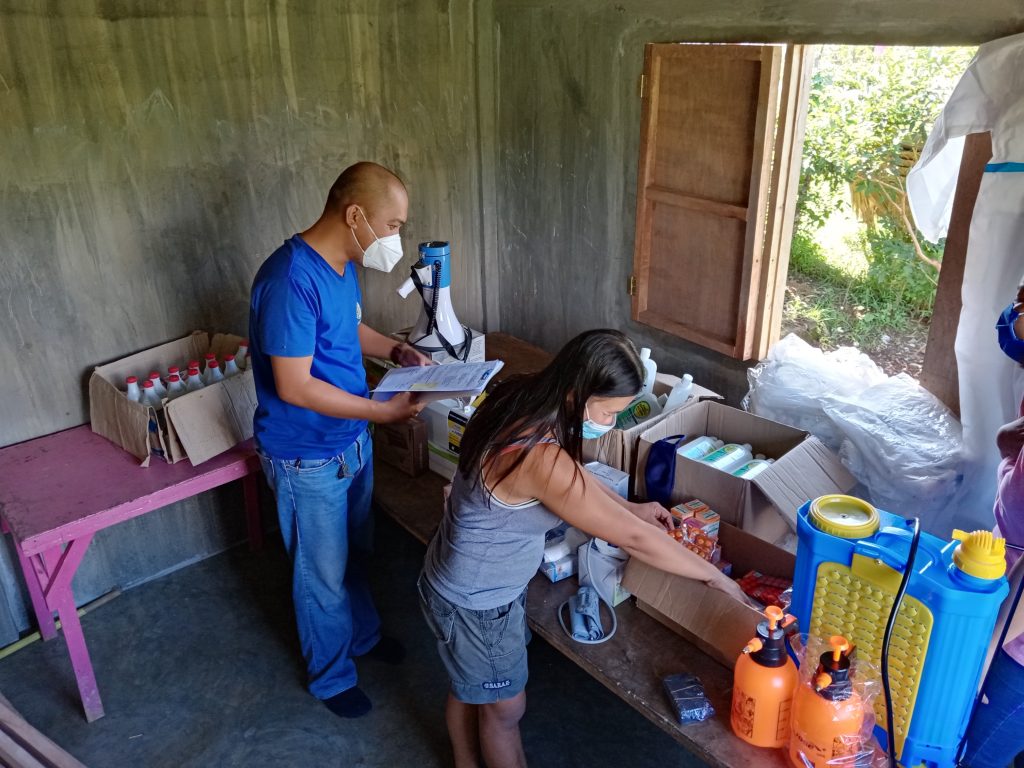
To become more responsive to the needs of poor communities around the country during the pandemic, the Department of Social Welfare and Development’s (DSWD) Kapit Bisig Laban sa Kahirapan-Comprehensive and Integrated Delivery of Social Services (Kalahi-CIDSS) Program has modified its operations to include the Disaster Response Operations Procedure (DROP) approach.
DROP enables Kalahi-CIDSS covered areas to shift its operations from regular developmental activities into a disaster response modality to hasten the approval of community projects that will enable the restoration of the community to a pre-disaster level of functioning.
Kalahi-CIDSS uses the community-driven development (CDD) strategy which allows communities to gain control over decisions and resources. Through the program, community members actively participate to identify and prioritize their community’s concerns and allow them to design, implement, and manage solutions to their priority problems.
One of the communities who benefitted from the program is Barangay Aguada, Rosario, Northern Samar.
Because of the necessity to ensure the functionality of their quarantine facility during the pandemic, the members of the community identified the need to procure medical equipment, and sanitation and hygiene supplies to better accommodate all persons under monitoring (PUM) and locally stranded individuals (LSIs) who will be returning to their town.
According to Mr. Rowel Dineros, the Barangay Sub-Project Management Committee (BSPMC) chairperson of Kalahi-CIDSS in Barangay Aguada, “Matapos tanggapin ng aming local government unit at barangay ang Kalahi-CIDSS, nagkaroon kami ng meeting upang pag-usapan ang magiging proyekto ng aming barangay ngayong may pandemya. Nag-proseso kami ng request for fund release para sa aming napagkaisahang proyekto upang mabigyan kami ng pondo” (After our local government unit and barangay accepted Kalahi-CIDSS, we had a community meeting to discuss the project that our barangay will implement during the pandemic. Once we determined the project, we processed a request for fund release to ask for project funding).
For three months, they participated in a modified Community Empowerment Activity Cycle (CEAC) which hastened the process for the implementation of their proposed project. On September 8, the procurement of public information devices, medical supplies and equipment, hygiene and sanitation supplies, and equipment for their quarantine and isolation facility was completed using the P121,601 funding support from DSWD and P2,800 community contribution of the barangay.
During the process, Dineros learned the importance of sacrifice and community service.
“Nang maging kalahok ako ng Kalahi-CIDSS, natutunan ko ang mahusay na time management kung paano ko hahatiin ang oras ko bilang volunteer at bilang haligi ng aking pamilya. Lalo ring lumawak ang aking kaalaman sa pagseserbisyo sa aking barangay” (When I became a participant of Kalahi-CIDSS, I learned proper time management by dividing my time as a volunteer and as the head of my family. My knowledge on community service also expanded), Dineros explained.
Dineros was also grateful for the opportunity given to their community to ensure that they will be able to decrease the risk of COVID-19 in their barangay.
“Napatunayan ko na kapag mahusay at klaro ang pakikipag-ugnayan sa isa’t isa, madaling nagkakaroon ng pagkakasunduan sa isinusulong na programa. Nagpapasalamat kami sa Kalahi-CIDSS dahil sa oportunidad na ibinigay sa aming barangay lalo na ngayong pandemya” (I learned that good and clear engagement with all concerned parties is the key to reaching an agreement in any program being implemented. I thank Kalahi-CIDSS for the opportunity given to our barangay especially during the pandemic), he ended. ###

